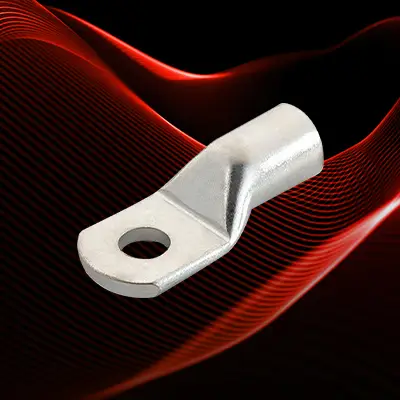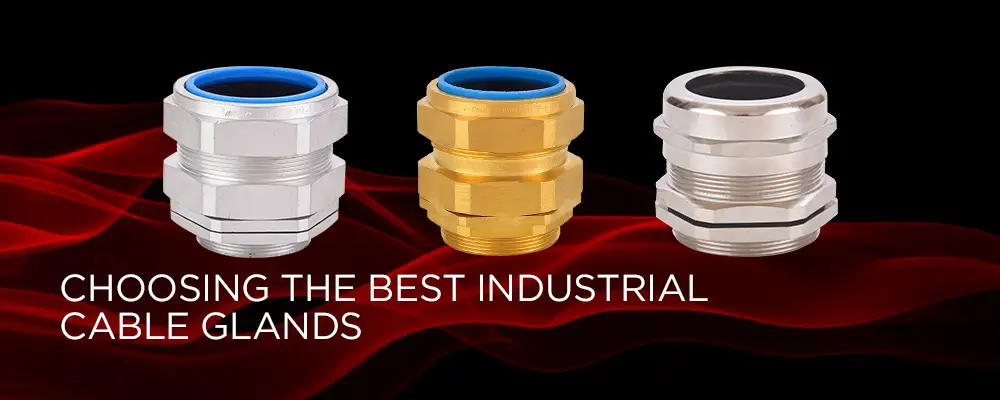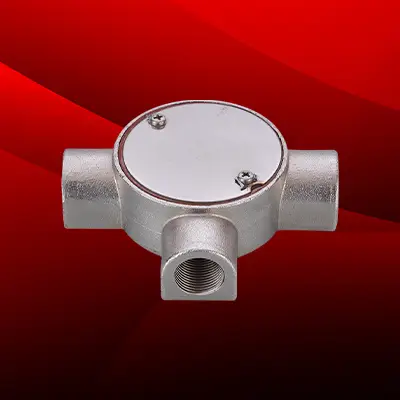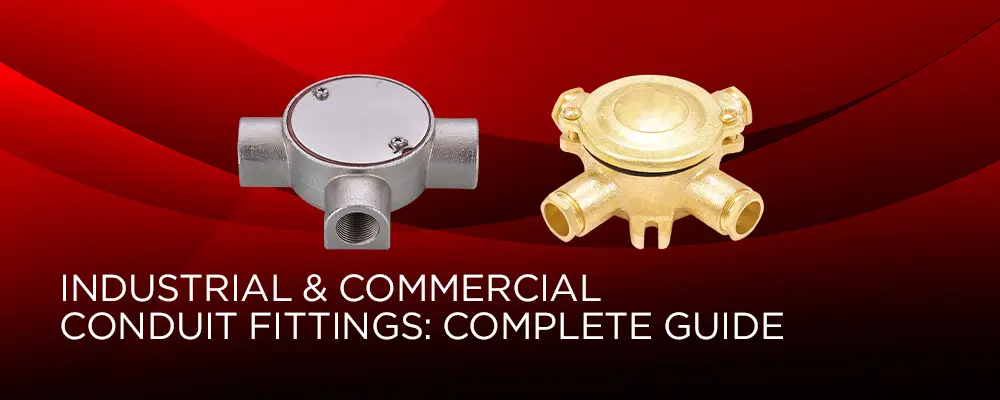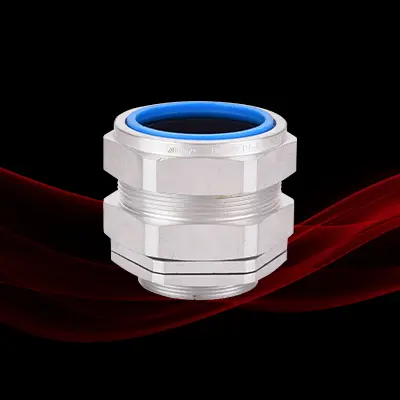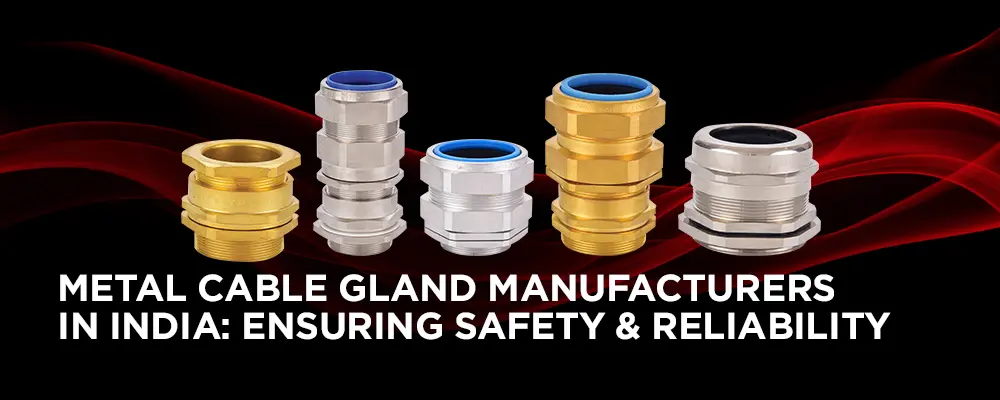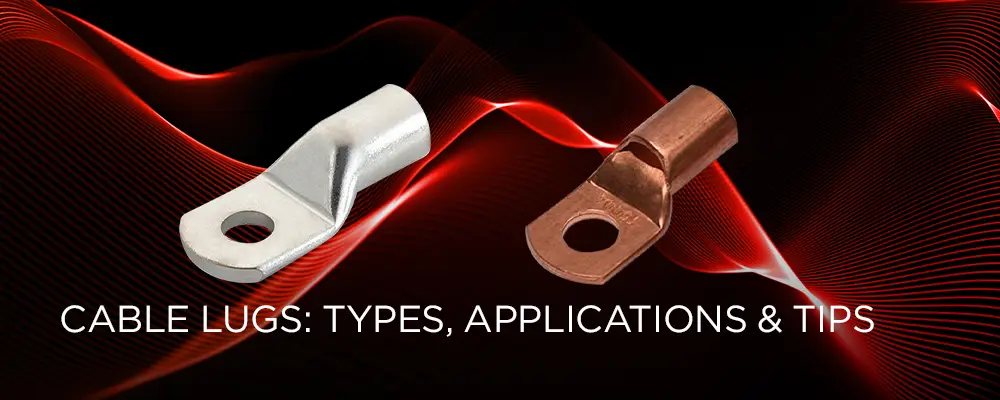
Cable lugs are essential components in electrical systems, ensuring secure connections between cables and electrical devices. They provide a reliable interface for terminating cables and connecting them to equipment, switchboards, or power supplies. Choosing the right cable lug is crucial for ensuring safe electrical connections and optimal performance.
This guide explores various cable lug types, their applications, and key tips for selection and installation. Additionally, we’ll highlight Atlas Metal Industries Pvt Ltd’s premium range of tubular cable lugs and other high-performance solutions for industrial and commercial use.
Choosing the right cable lug requires understanding the available types and their suitable applications. Key cable lug types include:
Tubular Regular Cable Lugs
These are commonly used for terminating copper cables. Their robust design ensures effective conductivity and durability in industrial applications. They are ideal for power distribution boards, switchgear, and control panels.
Tubular Cable Lugs (Standard Types)
This type of tubular cable lug is designed for applications requiring a higher level of mechanical strength and conductivity. They are widely used in power transmission systems, manufacturing units, and heavy electrical installations.
Copper In-Line Connectors
These connectors are designed for extending cables securely. They provide strong mechanical support and effective electrical conductivity, making them suitable for industrial and commercial installations.
Mechanical Cable Lugs (Bolted with 2 Screws & 4 Screws)
These mechanical lugs offer versatile connections with secure fastening. With either two or four screws for enhanced grip, they are perfect for high-vibration environments or installations requiring added mechanical stability.
Each of these types plays a crucial role in ensuring efficient power distribution and robust connectivity in diverse applications.
Choosing the correct cable lug is essential for safety and performance. Key factors to consider include:
- Cable Size: Refer to a cable lugs size chart to select the appropriate lug size for your cable diameter.
- Material Compatibility: Ensure the lug material matches the conductor material to prevent corrosion and enhance conductivity.
- Application Environment: For outdoor or hazardous environments, choose corrosion-resistant lugs like copper or brass options.
- Voltage and Current Ratings: Select lugs that can handle the system’s power requirements.
- Mounting Style: Consider whether a bolted or crimped connection is more suitable for your project’s needs.
By following these tips, you can ensure safe, secure, and efficient connections with optimal performance.
Proper installation of cable lugs is crucial for achieving reliable electrical connections. Follow these steps for best results:
- Prepare the Cable: Strip the cable insulation carefully, ensuring no damage to the conductor.
- Select the Right Lug: Refer to a cable lugs size chart to choose a compatible lug.
- Insert the Cable: Insert the stripped cable end into the lug barrel securely.
- Crimp the Lug: Use a crimping tool appropriate for the lug size to ensure a firm connection.
- Secure the Connection: Attach the lug to the terminal using appropriate screws or bolts.
- Test for Stability: Check for tightness and conduct continuity testing to ensure secure connectivity.
Following these steps reduces the risk of overheating, short circuits, or cable damage.
Atlas Metal Industries Pvt Ltd is a trusted manufacturer of premium-quality cable lugs, ensuring durability and performance. Here’s why they stand out:
- Superior Materials: Atlas Metal’s tubular cable lugs and connectors are made from top-grade copper and brass for improved conductivity and corrosion resistance.
- Precision Engineering: Every product is designed to meet industrial standards, ensuring high performance in critical electrical setups.
- Wide Range of Sizes: With an extensive variety of cable lugs size options, Atlas Metal caters to both standard and custom requirements.
- Proven Expertise: As a leading manufacturer in the industry, Atlas Metal Industries Pvt Ltd is known for consistent quality and innovation.
Choosing Atlas Metal guarantees reliable, high-performance electrical connections for industrial and commercial applications.
Selecting the right cable lugs is essential for ensuring secure and efficient electrical connections. Atlas Metal Industries Pvt Ltd offers a premium range of tubular cable lugs, mechanical lugs, and copper in-line connectors designed to meet diverse application needs. With their commitment to quality, Atlas Metal provides reliable solutions for industrial and commercial electrical systems.
Explore Atlas Metal’s comprehensive range of cable lugs today and find the perfect solution for your electrical projects.
For inquiries, reach us at sales@atlasmetalind.com or call us at +91-288 2730 944.
How do I determine the correct cable lug size for my project?
Refer to a cable lugs size chart to select the appropriate lug size based on your cable’s diameter and current rating.
What are the key advantages of tubular cable lugs?
Tubular cable lugs provide excellent mechanical strength, reliable conductivity, and secure crimping, making them ideal for industrial applications.
Are copper cable lugs better than aluminum lugs?
Copper lugs offer superior conductivity, corrosion resistance, and mechanical strength, making them preferable for demanding electrical environments.
Can I use mechanical cable lugs for high-vibration environments?
Yes, mechanical cable lugs with multiple screws provide enhanced stability, making them ideal for installations subject to vibrations or movement.
Where can I buy high-quality cable lugs for industrial use?
You can purchase premium cable lugs directly from Atlas Metal Industries Pvt Ltd for superior quality and performance.
What factors affect the lifespan of cable lugs?
The material type, environmental conditions, and proper installation significantly influence the longevity of cable lugs.
How can I ensure proper crimping of cable lugs?
Use a compatible crimping tool based on the cable lug type and size to achieve a secure, stable connection.

